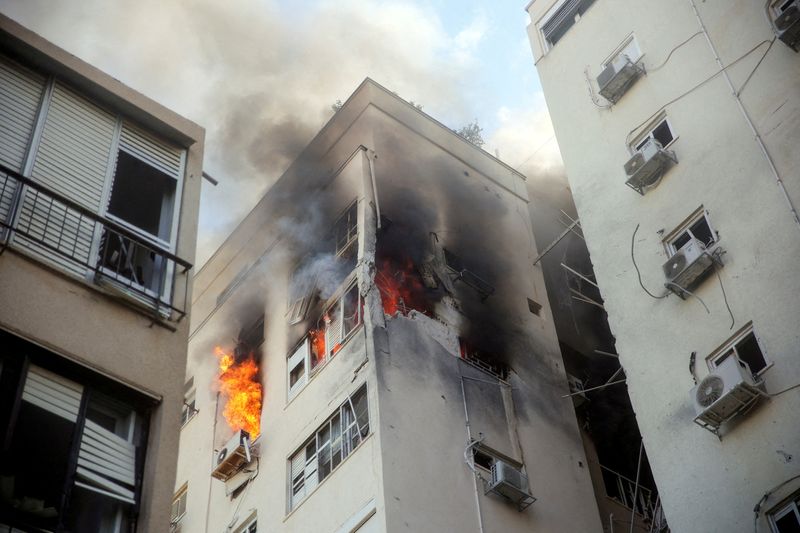Israel markets sink, businesses shut after Hamas attack

Introduction: The recent Hamas attack on Israel has had a devastating impact on the country’s economy. This article explores the aftermath of the attack, including the decline in stock and bond prices, the closure of businesses, and the disruption to air travel. It also discusses the potential long-term effects on Israel’s economy.
Israeli stock and bond prices slide, businesses close: Following the Hamas attack, Israeli stock and bond prices experienced a significant decline. Key Tel Aviv share indices fell by as much as 7%, while government bond prices fell up to 3%. This response reflects the severity of the attack, which is considered the bloodiest in decades. As a result, many businesses were forced to close their doors.
Weakening shekel: The shekel, Israel’s currency, has already been weakened by a controversial government plan to overhaul the judiciary. The attack has further exacerbated this situation, with experts predicting a sharp depreciation of the shekel in the coming days. There is even speculation that the Bank of Israel may need to sell foreign exchange reserves to stabilize the currency.
Prolonged economic impact: Economists are concerned that the violence unleashed by Hamas will have a prolonged and severe impact on Israel’s economy and fiscal budget. The uncertainty and disruption caused by the attack are expected to hamper economic growth and investment. Jonathan Katz, chief economist at Leader Capital Markets, warns of the negative consequences that lie ahead.
Hamas attack details: Hamas gunmen from Gaza killed hundreds of Israelis in their rampage through Israeli towns. They also abducted an unknown number of hostages before retreating to Gaza. In response, Israel launched air strikes on Hamas targets in Gaza. The attack prompted Gaza militants to fire thousands of rockets into Israel, resulting in the suspension of flights to and from the country.
Air travel disruptions: The attack has caused significant disruptions to air travel. Delta Air Lines and United Airlines have cancelled flights to Israel, with United Airlines suspending operations until conditions improve. Air India has also suspended flights to and from Tel Aviv. However, efforts are being made to rescue stranded Israelis, with Arkia and Israir operating rescue flights from various locations.
Economic resilience: Despite the state of emergency, Israel’s Manufacturers’ Association assures the public that factories are still operational, ensuring a steady supply of essential products. The association’s president, Ron Tomer, emphasizes Israel’s production independence and the commitment to meeting the residents’ needs even in times of crisis.
Impact on technology sector: The technology sector, a vital component of Israel’s economy, has also been affected. Nvidia, a leading chip manufacturer, has cancelled its AI summit in Tel Aviv, where CEO Jensen Huang was scheduled to speak. Intel Corp, Israel’s largest employer and exporter, remains tight-lipped about the impact on chip production. Tower Semiconductor, on the other hand, continues to operate as usual.
Conclusion: The Hamas attack has dealt a severe blow to Israel’s economy, with stock and bond prices tumbling and businesses shutting down. The weakening shekel and the disruption to air travel further compound the challenges facing the country. Despite these difficulties, Israel’s resilience and commitment to meeting the needs of its citizens offer hope for the future.

